No products in the cart.

AI and Water Ontologies: 5 Revolutionary Ways AI Transforms Water Resource Management
Contents
- II. Introduction
- II. Introduction
- III. Literature Review
- IV. Methodology
- V. Results
- VII. Discussion
- VIII. Conclusion
- References
- Further Reading: Independent Resources on AI and Water Ontologies
- FAQ: Common Questions About AI in Water Ontologies
- What is the role of AI in advancing water ontologies?
- How does AI enhance water resource management?
- What are the benefits of AI in water quality monitoring?
- Can AI help in the prediction of water-related anomalies?
- What ethical considerations should be taken into account when using AI in water management?
- Author
II. Introduction
Water is an indispensable resource, essential not only for life but also for ecosystems and human civilizations. The effective management and conservation of water resources require precise methodologies for data collection, analysis, and interpretation.
In this context, AI and Water Ontologies play a critical role in organizing and integrating diverse water-related data. Water ontologies serve as structured frameworks that enhance semantic interoperability, facilitating knowledge exchange and collaboration among stakeholders in the water domain. These ontologies are key in improving the efficiency of water management processes, making them indispensable tools for modern water governance.
This article explores the synergy between artificial intelligence (AI), data science, and water ontologies. Through a comprehensive review of the existing literature and empirical research, the study highlights the technological advancements and potential of AI and data science in revolutionizing water resource management. The aim is to underscore how these technologies can address complex water-related challenges and assist in creating informed, evidence-based decisions for sustainable water governance.
Water ontologies represent the complex ways societies conceptualize and manage water resources, influenced by cultural, environmental, and socio-political factors.
This study explores how AI, with its capabilities in data integration, algorithmic analysis, and predictive modeling, is transforming the management of water resources.
II. Introduction
Water is an indispensable resource, essential for life, ecosystems, and human civilizations. The effective management and conservation of water resources require precise and efficient methodologies for data collection, analysis, and interpretation.
In this context, AI and Water Ontologies have become pivotal in organizing and integrating diverse water-related data. Water ontologies provide structured frameworks that enhance semantic interoperability, enabling seamless knowledge exchange and collaboration among various stakeholders in the water sector. These ontologies are critical in streamlining data management and improving decision-making processes.
This article delves into the synergy between AI, data science, and water ontologies. Through an in-depth review of existing literature and empirical research, the study aims to highlight the technological advancements and potential of AI and data science in revolutionizing water resource management. The key objective is to illustrate how these technological interventions address complex water-related challenges, ultimately supporting the development of informed, evidence-based decisions for sustainable water governance.
III. Literature Review
A. Water Ontologies: Concepts and Challenges
Water ontologies are crucial in environmental informatics, aiming to systematically capture and organize the vast knowledge related to water resources. These ontologies provide structured frameworks that create a unified vocabulary and framework for water-related data, enabling semantic interoperability across various stakeholders. This integration facilitates effective communication and enhances collaborative efforts in the water domain. Water ontologies typically adopt hierarchical or network-based structures, forming taxonomies or ontology graphs that reflect the complexity of water-related concepts. However, several challenges persist in the development of robust water ontologies. One of the significant obstacles is data heterogeneity due to the diverse sources and formats of water-related data. To address this, sophisticated methods for data harmonization and integration are required, ensuring the ontology accurately reflects the multifaceted nature of water data. Additionally, maintaining the relevance and adaptability of water ontologies as knowledge evolves and environmental conditions change is essential. AI and data science play pivotal roles in refining and expanding these ontologies, ensuring their continued relevance in water management. For further insights on water resource management, explore our detailed resources on the subject.B. AI and Water Ontologies
AI significantly enhances the capabilities of water ontologies, particularly through machine learning algorithms. These algorithms automate the development of water ontologies by analyzing large datasets to identify key concepts and relationships. This automated approach not only accelerates the ontology development process but also uncovers insights that may be overlooked in manual curation. NLP, another branch of AI, helps integrate unstructured textual data into water ontologies. By analyzing research articles, reports, and policy documents, NLP can extract and integrate relevant information, enriching the ontology with a broader knowledge base. Additionally, AI-based knowledge representation and reasoning methods enable formalized definitions of ontology concepts, supporting automated decision-making processes. These advancements enhance the practical applications of water ontologies in water resource management. However, the integration of AI into water ontologies faces challenges. A critical hurdle is the need for high-quality, representative datasets to train AI models effectively. Additionally, mitigating biases in AI algorithms is essential to maintain the reliability and objectivity of water ontologies. Successful implementations of AI in water ontologies include automated water quality classification systems and ontology-based expert systems for water management. To explore more on this, visit our resources on water conservation.C. Data Science Approaches for Water Ontologies
Data science methodologies significantly enhance the development and refinement of water ontologies. One of the primary roles of data science is data integration. With water-related data originating from diverse sources and formats, it is essential to employ techniques like data harmonization and linking to create cohesive and structured water ontologies. Data mining techniques, such as clustering, classification, and association rule mining, are applied to uncover patterns and relationships within the water data captured by ontologies. These insights are instrumental in guiding the further development of ontologies, making them more applicable to various water resource management scenarios. Data visualization also plays a crucial role, enabling stakeholders to interact with complex data through graphs, charts, and maps, which facilitates better decision-making. Moreover, data quality assessment is a critical aspect of ontology development. Data scientists use various techniques to identify and rectify inconsistencies, errors, and outliers, ensuring the integrity and reliability of the water ontology. This process of continuous quality assurance is essential for maintaining the utility and accuracy of the ontology over time. For more information, check out our films on water conservation.D. Statistical Analysis of Water Ontologies
Statistical methods provide a solid foundation for analyzing and interpreting data within water ontologies. Descriptive statistics offer an overview of the water-related concepts and attributes, providing insights into their central tendencies, variability, and distribution. This understanding is crucial for any further analysis of the ontology data. Hypothesis testing is used to examine the relationships between different water ontology concepts, allowing researchers to test for significant differences and correlations. Regression and correlation analyses help uncover the strength and nature of associations between variables, contributing to a better understanding of the underlying processes in water management. Predictive modeling, including time-series and regression analysis, is essential for forecasting future water-related trends based on historical data. These models provide valuable insights for resource planning, risk assessment, and policy-making. Lastly, statistical evaluation techniques assess the validity and reliability of the ontology, ensuring it accurately reflects real-world phenomena.IV. Methodology
The research methodology is based on a systematic approach to analyzing the intersection of AI, data science, statistics, and water ontologies. The study begins with an extensive literature search in reputable academic databases, such as Scopus, to identify relevant articles on AI, data science, and statistics in water ontologies. The selected articles undergo an in-depth review and critical analysis, focusing on methodologies, findings, and implications in the context of water ontologies. The review synthesizes key trends, methodologies, and findings within the field, offering an overview of the current state of research. The analysis identifies areas for future research, highlighting innovative approaches and emerging technologies that can further enhance the development of water ontologies.V. Results
The systematic review of peer-reviewed literature has revealed several pivotal findings concerning the integration of AI, data science, and statistical methodologies in the context of water ontologies. These findings highlight the transformative potential of these technologies in overcoming challenges related to water resources management. The key outcomes are summarized below:A. Data Integration and Knowledge Discovery
Advanced AI and data science methodologies, including various machine learning algorithms, have proven effective in integrating heterogeneous water-related data from multiple sources. These methodologies help uncover intricate patterns and provide valuable insights from large datasets, thereby enhancing knowledge discovery in the water sector. By aggregating data from sensors, satellites, and even digital social platforms, water ontologies remain comprehensive and reflective of the dynamic nature of water systems.B. Ontology Development and Enrichment
NLP techniques have played a crucial role in the development and enrichment of water ontologies. By applying NLP, relevant information is extracted from various textual sources such as scientific publications, technical reports, and digital content. This structured information significantly enhances the semantic depth and interoperability of water ontologies, enabling them to encapsulate and articulate a wide array of water-related knowledge.C. Water Quality Prediction and Anomaly Detection
Empirical and predictive models have been successfully employed to enhance the monitoring and forecasting of water quality. By utilizing historical water quality data, along with environmental parameters and other relevant variables, these models provide predictions on current and future water quality conditions. They also aid in detecting anomalous or potentially hazardous events. This anticipatory capability enables timely interventions and proactive management strategies, ultimately safeguarding water quality.D. Decision Support Systems
AI-powered decision support systems have been developed to enhance decision-making in water resource management. These systems integrate real-time data feeds, predictive analytics, and optimization algorithms to provide a robust informational and analytical foundation for decision-makers. Such systems are particularly effective in strategizing water allocation, maintaining infrastructure, and implementing water conservation initiatives. The integration of AI and empirical insights into decision-making represents a shift towards more sustainable and informed water management practices. In summary, the research highlights the significant potential of AI, data science, and statistical methods in advancing water ontologies and, by extension, improving water resource management. These technologies are essential for facilitating data integration, accelerating knowledge discovery, improving water quality prediction, and supporting decision-making. The application of AI and data-driven approaches enables stakeholders to gain valuable insights, optimize resource allocation, and adopt proactive strategies for managing water resources. This reinforces the need for greater incorporation of AI, data science, and statistical methodologies in developing and applying water ontologies, ultimately influencing future water management strategies.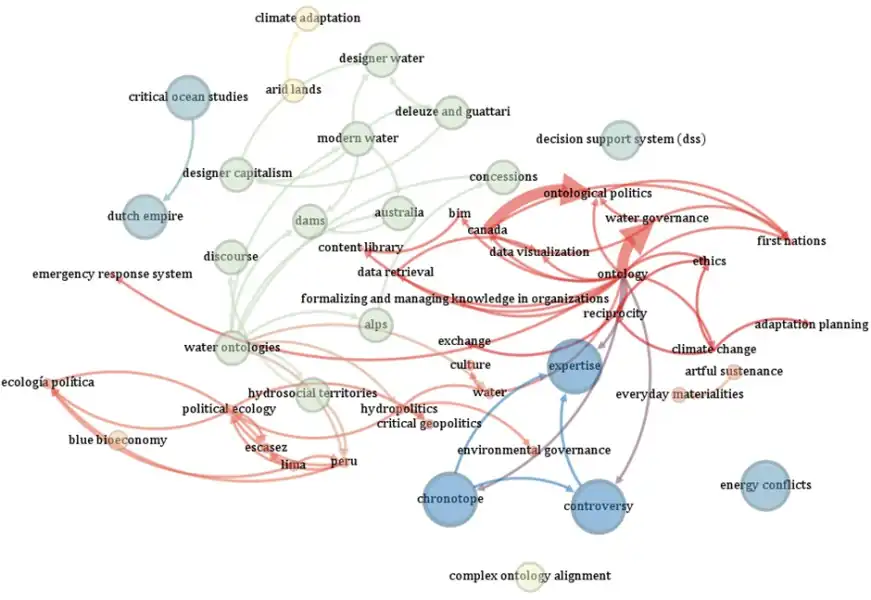
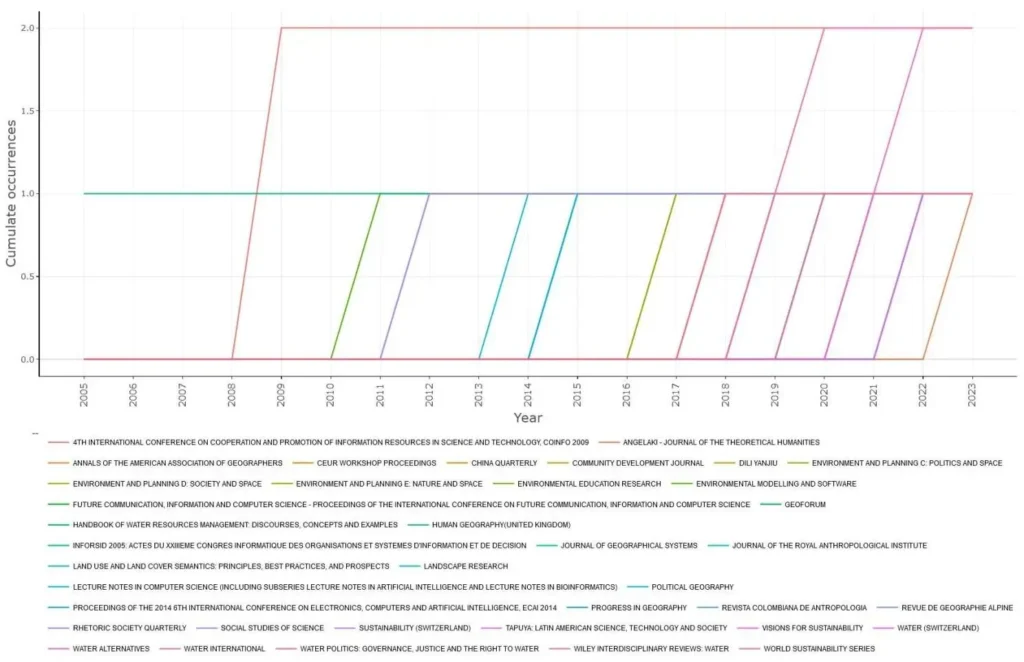
VII. Discussion
A. The Multifaceted Implications of AI in Water Resource Management
The integration of artificial intelligence (AI), data science, and statistical methodologies in water ontologies signifies a transformative shift in water resource management. AI’s ability to integrate data and perform predictive analytics enhances our understanding of complex water systems and strengthens decision-making processes. However, these advancements come with challenges, including ethical concerns regarding data usage, algorithmic transparency, and the necessity for continuous human oversight in AI applications. Additionally, there are broader implications for local communities and ecosystems, underlining the importance of sustainable and inclusive practices in AI-driven water resource management.
B. Bridging the Gap between Technology and Policy
The findings underscore the need for robust policy frameworks that can keep up with the rapid technological advancements in water management. While AI and data science offer significant benefits, there is a pressing need for policies addressing data privacy, security, and equitable access to water resources. Policymakers must collaborate with technologists, community leaders, and indigenous groups to ensure AI integration into water ontologies aligns with societal, environmental, and cultural goals. Learn more about policy recommendations in Water Articles.
C. Future Directions and Research Opportunities
As AI continues to evolve, so will its applications in water ontologies and resource management. Future research must focus on enhancing AI’s predictive accuracy, expanding data integration capabilities, and improving the interpretability of AI models. There is a growing need to explore AI’s potential in addressing global water crises, especially in under-resourced and indigenous regions. Collaborative research, involving interdisciplinary teams and local knowledge holders, will be key to unlocking the full potential of AI in water management. Check our Water Management and Conservation Resources for further insights.
D. The Role of Data Science in Advancing Water Ontologies
Data science is pivotal in the development of effective water ontologies, enabling the integration, analysis, and visualization of diverse water-related data. As water ontologies evolve, the role of data scientists in ensuring the accuracy, reliability, and ethical use of data becomes even more critical. There is also a need for advanced training and capacity building in data science, particularly in water management sectors and communities traditionally underrepresented in the sciences. For more information on the role of data science, visit our Films on Water Conservation.
E. Challenges and Limitations
While AI and data science offer undeniable potential in enhancing water ontologies, several challenges remain. Issues like data heterogeneity, quality discrepancies, and the need for extensive datasets pose substantial obstacles. Additionally, integrating traditional water management practices with modern AI-driven approaches requires careful consideration to respect and incorporate the values, rights, and knowledge of native and local communities. Overcoming these challenges demands technological solutions coupled with collaborative, interdisciplinary approaches, with a strong focus on social and environmental justice.
In conclusion, the discourse surrounding the integration of AI, data science, and statistics into water ontologies is both promising and complex. As the field continues to evolve, researchers, policymakers, and practitioners must engage in ongoing dialogue to ensure these technologies are applied responsibly and effectively. A clear focus on enhancing the sustainability, resilience, and inclusivity of global water resources is essential. Learn more about the future of water ontologies in AI and Water Ontologies.
VIII. Conclusion
This article comprehensively highlights the significant advances and diverse applications of AI, data science, and statistics within the context of water ontologies. The evidence presented accentuates the transformative potential of these technologies in improving water resource management, bolstering water quality surveillance, and enabling evidence-based decision-making processes. These insights are invaluable for stakeholders, including researchers, policymakers, and water management professionals, as they navigate both the promising prospects and inherent challenges in integrating AI and data science into water ontologies.
The findings highlight AI and data science’s vast potential in creating and applying water ontologies. Machine learning algorithms enable a comprehensive understanding of water ecosystems, facilitating informed decision-making and efficient resource management. NLP enriches water ontologies by assimilating relevant information from textual narratives, increasing their semantic depth and interoperability. Predictive models offer precision in forecasting water quality and identifying atypical events, enabling proactive water quality governance and protection.
Furthermore, decision support systems that integrate real-time data, predictive modeling, and optimization techniques empower water professionals with profound insights, optimizing resource distribution and strengthening conservation efforts. The integration of AI, data science, and statistical methodologies paves the way for a data-driven paradigm in water management, promoting both efficiency and sustainability. However, careful consideration of data integrity, privacy, and ethical implications is vital to the success and ethical stewardship of these technological advancements.
In conclusion, the study underscores AI, data science, and statistics’ significant role in advancing water ontologies. These technologies enable data integration, knowledge discovery, water quality monitoring, and decision support, all of which enhance water resource management. As global water challenges grow in complexity, embracing AI and data science methodologies will be essential in fostering sustainable and effective water management strategies in the future.
References
Further Reading: Independent Resources on AI and Water Ontologies
A curated selection of public resources and tools relevant to AI in water management, ontologies, and the integration of artificial intelligence in water systems. These resources complement the themes explored in this article on AI and Water Ontologies.
Research Platforms & Tools
- AI and Water Ontologies – A dedicated section on Ecolonical for exploring the role of AI in advancing water ontologies and management.
- Water Articles – Explore a curated list of articles on water resource management and the integration of AI in water ontologies on Ecolonical.org.
- Global Waters – A global platform for water-related data and resources, focused on sustainable water management practices.
Community-Based Water Science
- Water.org – An organization providing resources and solutions for improving access to water and sanitation, with a focus on AI in water management.
- Films on Water Conservation, Access, and Sustainability – A collection of films that shed light on the global water crisis and conservation efforts around the world.
FAQ: Common Questions About AI in Water Ontologies
What is the role of AI in advancing water ontologies?
How does AI enhance water resource management?
What are the benefits of AI in water quality monitoring?
Can AI help in the prediction of water-related anomalies?
What ethical considerations should be taken into account when using AI in water management?
Author
-

Milena-Jael Silva-Morales is the Founder & Director of Ecolonical LAB, an independent research lab specializing in data, AI, and territorial systems. A systems engineer with a Ph.D. in Urban & Territorial Systems and over 13 years of experience in R&D&I, she focuses on FAIR data governance, AI ethics, and interdisciplinary methodologies for water, energy, and biodiversity systems.
View all posts
This article is governed by the Ecolonical Open Knowledge License (EOKL Lite V1). This license explicitly prohibits the use of its contents for AI model training, dataset integration, algorithmic processing, or automated decision-making systems. Unauthorized computational aggregation, reproduction beyond permitted terms, and any use conflicting with open knowledge principles are strictly restricted.
For legally binding terms, compliance obligations, and permitted exceptions, refer to the License Usage Policy.
Under specific conditions, this content aligns with the Creative Commons Attribution-NonCommercial-ShareAlike 4.0 International License. However, any AI-related processing, direct commercial exploitation, or automated derivative work remains subject to EOKL Lite V1 restrictions.
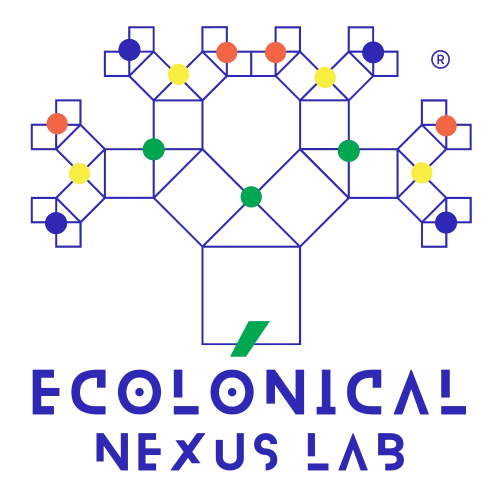


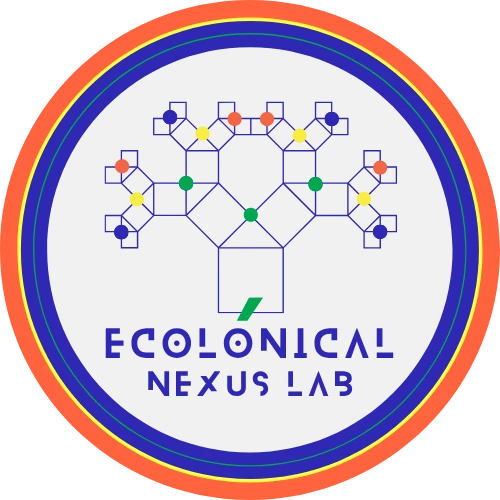

Leave a Reply